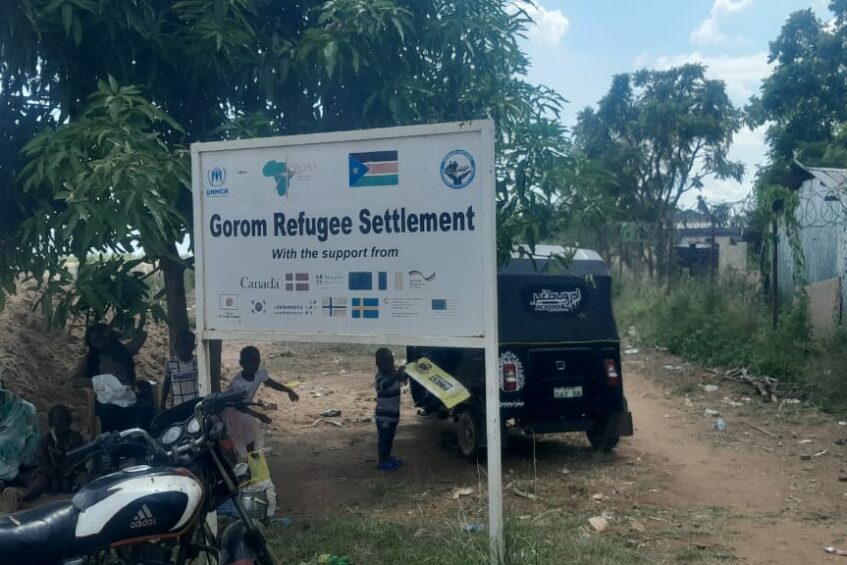You are here: Home | Humanitarian | News | Sudanese refugees decry harsh living condition at Gorom camp

Gorom Refugees Settlement, hosts thousands of Sudanese refugees who fled the war in Sudan. (Photo: Obaj Okuj).
Thousands of Sudanese refugees residing at Gorom Refugees settlement in Juba County have decried harsh living conditions due to inadequate humanitarian support.
The refugees who fled the conflict in Sudan cite inadequate healthcare facilities, insufficient sanitation, and a lack of educational opportunities for their children.
According to some of them who spoke to Eye Radio, the limited access to vital medical services is hampering their ability to seek treatment.
They also pointed out improper waste management systems, scarcity of water sources, and sanitary kids, which significantly impact their overall well-being and hygiene standards.
One of the refugees, whose name has been withheld, said a household receives at least one sack of sorghum and about 8,000 South Sudanese pounds (8 dollars) a month, which he said can do nothing at a time when prices are high.
He added: “At the moment we live in bad conditions, there is no access to clean water in the camp, for example I live in the fifth shelter, and we do not have water, our situation is very bad.”
“The boreholes that were dug are far from us and they tell us that they will deliver the water to us through pipes, but we still suffer from the water problem. The big problems are that some people have chronic diseases.”
The Sudanese refugee further said some of the refugees are suffering from chronic health conditions without proper medical care.
“We have a refugee who suffers from spleen and liver, and many others like him suffer here. To take him to Juba Hospital, this sometimes takes about a month to reach the doctor, and sometimes when you arrive, there is no good service.”
Another refugee said his household of five were given only half a sack of sorghum in the last three months.
“All the refugees in the camp suffer from the problem of food and water, and the biggest problem we have here is the hospital.”
“I think the biggest problem is that if you went to the hospital and registered to see the doctor since teatime in the morning, sometimes it takes you a whole day to see the doctor because there are no doctors, and the work is very slow.”
“And a very big problem is that we have sick people in very bad conditions who are transferred to Juba, and they are not treated either.”
On his part, the Deputy Director for Protection and Welfare Commission for Refugees Affairs said the services are inadequate due to the large number of the refugees.
Daniel Chagai Gak said the camp was meant to accommodate about 2,000 refugees but the number has quadrupled.
He spoke to Eye Radio at Gorom Refugee Settlement Camp in Juba County.
Chagai said there is need for collaboration between government agencies, international organizations, and community stakeholders.
Support Eye Radio, the first independent radio broadcaster of news, information & entertainment in South Sudan.
Make a monthly or a one off contribution.
Copyright 2024. All rights reserved. Eye Radio is a product of Eye Media Limited.